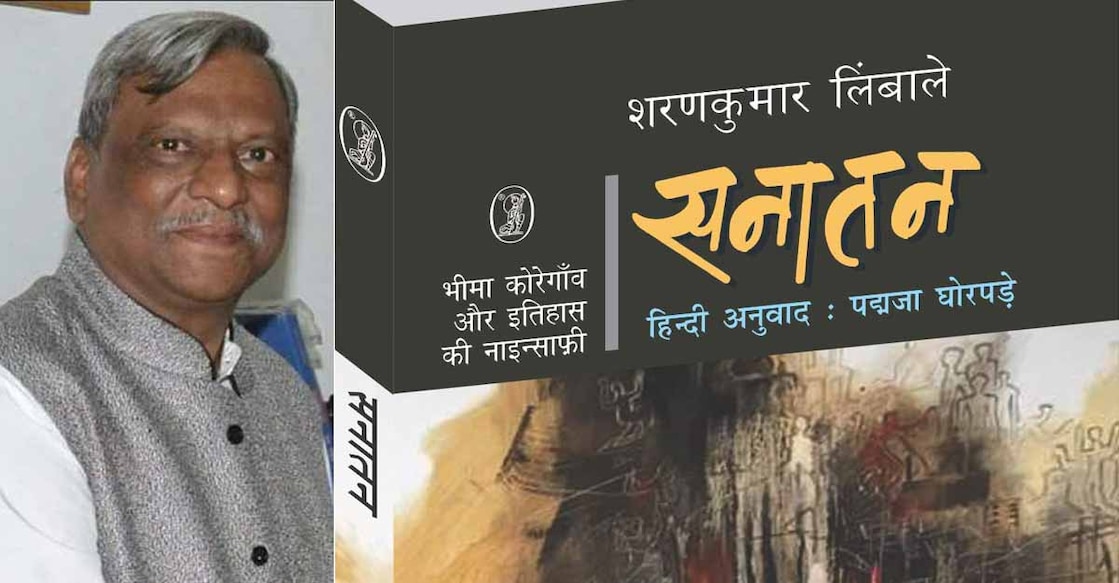Saraswati Samman for Sharankumar Limbale is a triumph of Dalit writers

Mail This Article
The announcement on Tuesday of the 30th edition of the Saraswati Samman, the highest recognition in the field of Indian literature, honouring Marathi writer, poet and critic Sharankumar Limbale is a triumph of Dalit writers who wrote against all odds, across genres to reclaim their humanity and rightful place under the sun.
It's a rare literary coincidence that Limbale has been selected for the honour for his 2018 novel 'Sanatan,' which is a social and historical document of the centuries-old struggles by the Dalits and Adivasis of India. "The author has written this novel using many imaginative characters and space. He has brilliantly weaved the novel with history," said the KK Birla Foundation, which instituted the award in 1991, in a press note.
Historical accounts are generally known to be about the ruling classes, their heroes and victories. But Limbale has woven a different narrative in 'Sanatan' focusing on the socio-cultural struggles of the oppressed people during the Mughal and British rule besides their encounters with Mohammedan and Christian faiths, which some of them adopted but failed to deliver from oppression and exploitation.
The KK Birla Foundation in its statement recognized 'Sanatan' as a first novel written in its own unique style telling the story of the struggles of the ordinary masses.
Limbale's contribution to literature in the past four decades or so has been immense but he remains best known for the seminal work 'Akkarmashi,' an autobiographical novel which literally means someone impure of blood. The author recalls in it how he was not able to write anything when a teacher asked the class to pen an essay on the school picnic. He kept thinking about his rather unpleasant experiences and the more he tried thinking about it, the more complex and agonizing it became for him.
Years later he found the courage to describe his state of insecurity and reveal his inner conflicts as a member of an oppressed Dalit community. He'd felt like "a patch of leprosy" being marked as a Mahar (the caste to which Dr Babasaheb Ambedkar belonged) and not being able to join the higher caste students in playing games or during lunchtime at the picnic.
Limbale has since penned more than 40 works, but remains best known across the country for 'Akkarmashi' published in 1984. It was translated into English by Santosh Bhoomkar and came out as 'The Outcaste' in 2003. "For me and for other Dalit writers writing is a form of rebellion. Our protest is both on the streets and on paper. My words are my weapons," he says.
Some critics and fellow litterateurs consider Limbale's book, 'Towards an Aesthetic of Dalit Literature' as his biggest and most important contribution to Dalit literature. It is a searing critique and theoretical formulation about the ignorance of the Savarnas of the Dalit life, its trials and tribulations, besides the expression of it in Dalit art and literature.
Limbale says: "A considerable proportion of Savarna critiques of Dalit literature suffer from shallowness. Also, there is a distinct tendency to expose the instances of one-sided, monotonous and sub-standard writing and publishing found in Dalit literature. There is also an attempt in Savarna critique to sever the Dalit writers' links with tradition and culture. And, finally, there is a total absence of sociological literary yardsticks. All these limitations point to the need for a Dalit literary criticism."
Limbale's own works are indeed a stark reflection of his life and depict both the struggles and triumphs since his birth on June 1, 1956 in Maharashtra's arid Solapur district. He worked hard to obtain his masters degree in Marathi literature and went on to obtain a PhD in comparative study of Marathi Dalit literature and American Black literature from the Shivaji University, Kolhapur, which perhaps shaped the critic in him.
Limbale started his career with the public broadcaster All India Radio (AIR) in Solapur, where he worked from 1986 to 1992. He later joined the department of publication in the Yashwantrao Chavan Maharashtra Open University, Nashik, from where he retired as a professor and director.
His latest achievement is all the more important in the Marathi literary world as he happens to be only the third Maharashtrian to have won the Saraswati Samman. The previous recipients of this prestigious award from the state include playwrights Vijay Tendulkar and Mahesh Elkunchwar.

